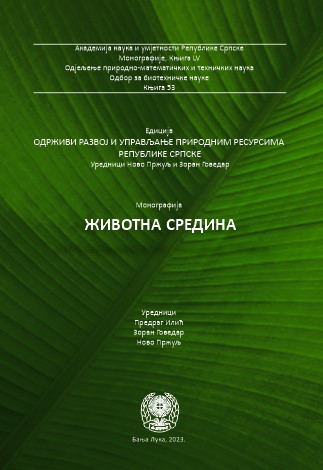Sustainable use of pesticides in environmental protection
DOI:
https://doi.org/10.7251/EORU2309643TKeywords:
Sustainable use of pesticides, national action plan, reduction of risks and negative effects from the use of pesticides, environmental protectionAbstract
The concept of sustainable use of pesticides implies a series of rules, procedures and skills in the use of pesticides that are prescribed by the relevant legislation in the European Union, and which countries that are in the process of joining it are obliged to follow and apply. These prescribed norms include the development of a national action plan to achieve the sustainable use of pesticides; application of the principle of integral protection of plants; establishing a continuous training system for professional users of pesticides, distributors and advisors; establishment of appropriate conditions for the sale and distribution of pesticides; handling and storage of pesticides and disposal of their packaging and residues; regular control of pesticide application devices; keeping records and databases; informing the public and raising the level of awareness about the sustainable use of pesticides; application of measures to reduce the risk of pesticide use; the application of special practices in the use of pesticides, including aerial spraying, special measures for the protection of aquatic environments and drinking water, the application of pesticides on public and green areas, the reduction of pesticide use in certain areas, and the protection of bees during the application of pesticides, as well as the application of risk indicators, reporting and exchange of information on the sustainable use of pesticides. The purpose of this legislation is to achieve the sustainable use of pesticides and reduce the risks and negative effects from the use of pesticides in a way that ensures a high degree of protection of human and animal health, along with the protection and preservation of the environment and biodiversity, as well as the introduction of mandatory application of the basic principles of integral protection of plants for control of harmful organisms, including alternative approaches and techniques, such as non-chemical plant protection measures with the aim of achieving sustainable and competitive agriculture.
